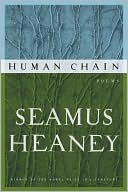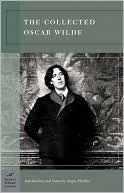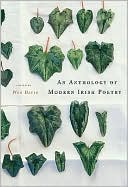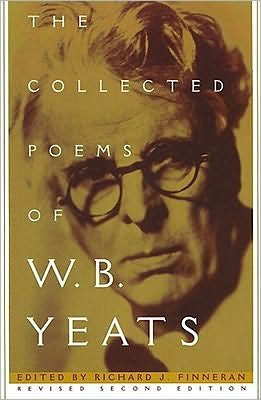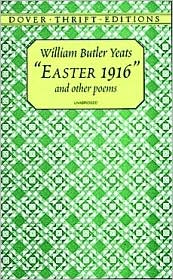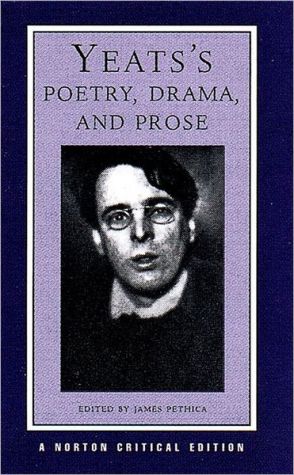District and Circle
District and Circle inhabits the eerie new conditions of a menaced twenty-first century. In their haunted, almost visionary clarity, the poems assay the weight and worth of what has been held in the hand and in the memory. Scenes from a childhood spent far from the horrors of World War II are colored by a strongly contemporary sense that "Anything can happen," and other images from the dangerous present—a fireman's helmet, a journey on the Underground, a melting glacier—are fraught with this...
Search in google:
District and Circle inhabits the eerie new conditions of a menaced twenty-first century. In their haunted, almost visionary clarity, the poems assay the weight and worth of what has been held in the hand and in the memory. Scenes from a childhood spent far from the horrors of World War II are colored by a strongly contemporary sense that "Anything can happen," and other images from the dangerous present—a fireman's helmet, a journey on the Underground, a melting glacier—are fraught with this same anxiety. But the volume, which includes some "found prose" poems and translations, offers resistance as the poet gathers his staying powers and stands his ground in the hiding places of love and excited language. With more relish and conviction than ever, Heaney maintains his trust in the obduracy of workaday realities and the mystery of everyday renewals.The Washington Post - Anthony CudaIf literary history (and its brutal instrument, the anthology) preserves only this poem from so impressive a volume, it will be enough to remind us why Heaney remains such a celebrated poet, why many place him firmly among the best of the 20th century and why his work continues to be worth rereading long after it has, in his words,"set the darkness echoing" behind it.
The turnip-snedder3A shiver5Polish sleepers6Anahorish 19447To Mick Joyce in heaven8The aerodrome11Anything can happen13Helmet14Out of shot15Rilke : after the fire16District and circle17To George Seferis in the underworld22Wordsworth's skates24The harrow-pin25Poet to blacksmith27Midnight anvil28Sugan301The Sally rod312A chow323One Christmas Day in the morning33The nod34A clip35Edward Thomas on the Lagans Road361The Lagans Road372Tall dames383Boarders39The lift40Nonce words42Stern441"Like everybody else ..."452Brancardier473Saw music48In Iowa50Hofn51On the spot52The Tollund man in springtime53Moyulla59Planting the alder62Tate's avenue63A hagging match64Fiddleheads65To Pablo Neruda in Tamlaghtduff661Helping Sarah682Chairing Mary69Rilke : the apple orchard70Quitting time711A scuttle for Dorothy Wordsworth722A stove lid for W. H. Auden73The birch grove74Cavafy : "the rest I'll speak of to the ones below in Hades"75In a loaning76The blackbird of Glanmore77
\ From the Publisher"A book as original , startling and aesthetically compelling as any since his magisterial 1984 sequence, Station Island. " —The Washington Post Book World "[Heaney's] voice carries the authenticity and believability of the plainspoken—even though (herein his magic) his words are anything but plainspoken. His stanzas are dense echo chambers of contending nuances and ricocheting sounds. And his is the gift of saying something extraordinary while, line by line, conveying a sense that this is something an ordinary person might actually say." —Brad Leithauser, The New York Times Book Review\ \ \ \ \ Brad LeithauserHeaney has always had a gift for recounting chance encounters, poignant little anecdotes. His voice carries the authenticity and believability of the plainspoken - even though (herein his magic) his words are anything but plainspoken. His stanzas are dense echo chambers of contending nuances and ricocheting sounds. And his is the gift of saying something extraordinary while, line by line, conveying a sense that this is something an ordinary person might actually say.\ — The New York Times\ \ \ Anthony CudaIf literary history (and its brutal instrument, the anthology) preserves only this poem from so impressive a volume, it will be enough to remind us why Heaney remains such a celebrated poet, why many place him firmly among the best of the 20th century and why his work continues to be worth rereading long after it has, in his words,"set the darkness echoing" behind it.\ — The Washington Post\ \ \ \ \ Publishers WeeklyThe latest from the Irish Nobel laureate may be his best in more than a decade. Celebrations of everyday objects (a fireman's helmet, a sledgehammer, an anvil), homages to and elegies for other poets (George Seferis, Pablo Neruda, Czeslaw Milosz) and gleaming recollections from the author's rural youth dominate this lyrical volume, which stands out as well for its diversity of forms: the supple pentameters Heaney perfected in such 1990s volumes as Seeing Things rub shoulders with prose poems, rough-hewn quatrains and slower-paced free verse reminiscent of the 1970s poems that made his name. Many efforts strike a ground note of nostalgia: "A Clip" remembers the "one-roomed, one-chimney house" where Heaney got his first haircut, "Senior Infants" looks back at primary school. Yet for all his Irish rootedness, Heaney's newest work remains international (poems set in the London Underground, the Danish bog where he set famous earlier poems, and in a warm and pleasant Italy) and unboundedly global: one of the strongest short lyrics, "Hofn," wonders at a newly melting glacier, anxious about global warming, yet astonished by the ice's remaining immensities, its "grey-gristed earth-pelt, aeon-scruff," "its coldness that still seemed enough/ To iceblock the plane window dimmed with breath." (May) Copyright 2006 Reed Business Information.\ \ \ \ \ Library JournalNobel prize winner Heaney's (Death of a Naturalist) latest collection of robust lyrics celebrates work, memory, and the physicality of existence. Brimming with anvils, hammers, shovels, and pumps, these poems are scored into the page with Heaney's signature accentual and alliterative force. They demonstrate that words can be braced and wedged and lifted and swung from the shoulder, leaving almost physical traces of the objects they name: "Contrary, unflowery/ sky-whisk and bristle, more/ twig-fret than fruit-fort,/ crabbed/ as crabbed could be-/ that was the tree/ I remembered." For Heaney, the tongue is the muscle best suited to the hard work of animating the past, as in the sonnet sequence "District and Circle," in which he re-creates the movement of a subway ride taken decades earlier: "So deeper into it, crowd-swept, strap-hanging,/ My lofted arm a-swivel like a flail,/ My father's glazed face in my own waning/ And craning...." His is an uncompromising Irish tongue-a rural one, at that-and the gravitas he invests in unfamiliar objects will leave some American readers cold, but there is no question that Heaney's poetry presents the "mass and majesty of this world" with unparalleled vigor. Recommended.-Fred Muratori, Cornell Univ. Lib., Ithaca, NY Copyright 2006 Reed Business Information.\ \

